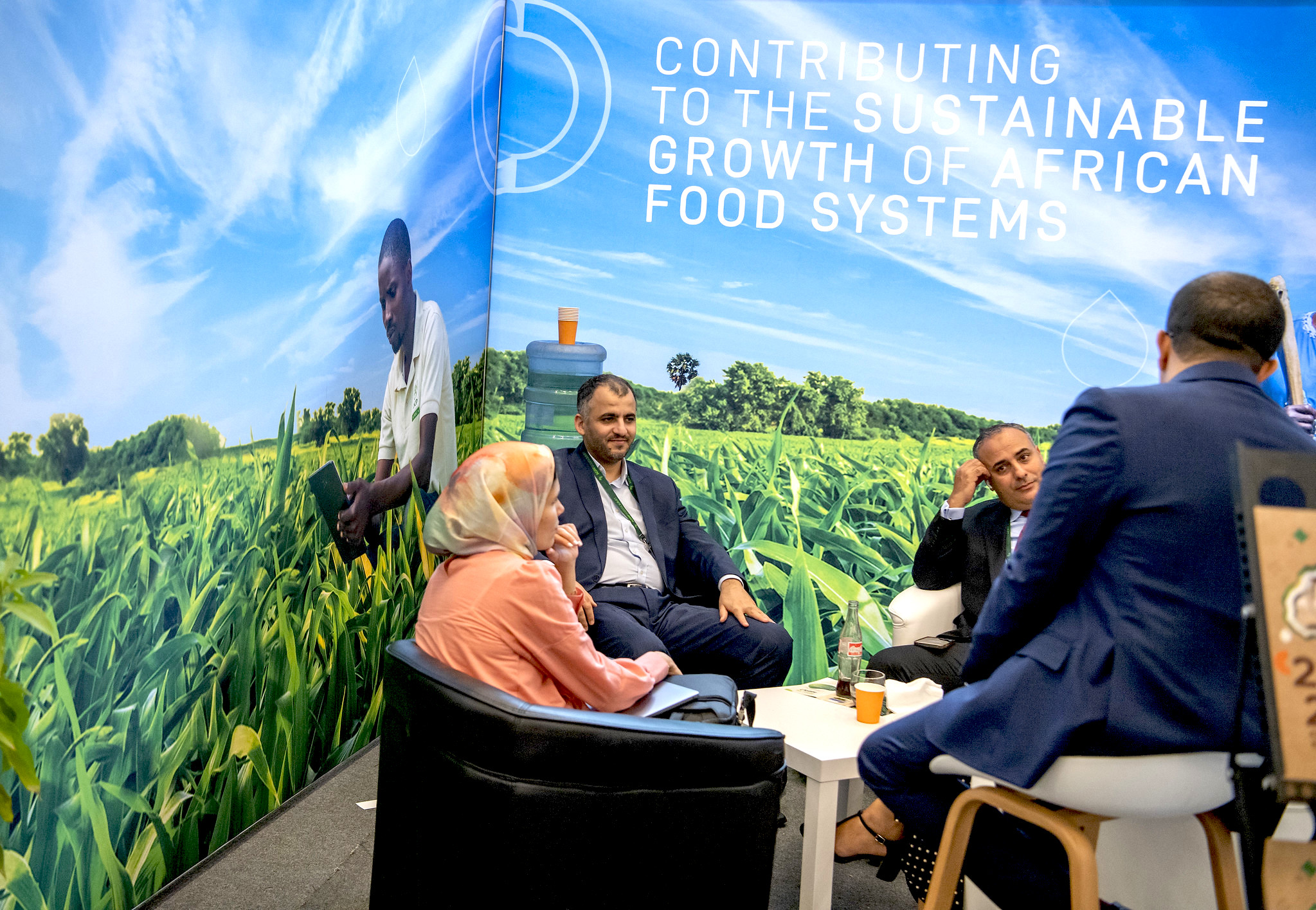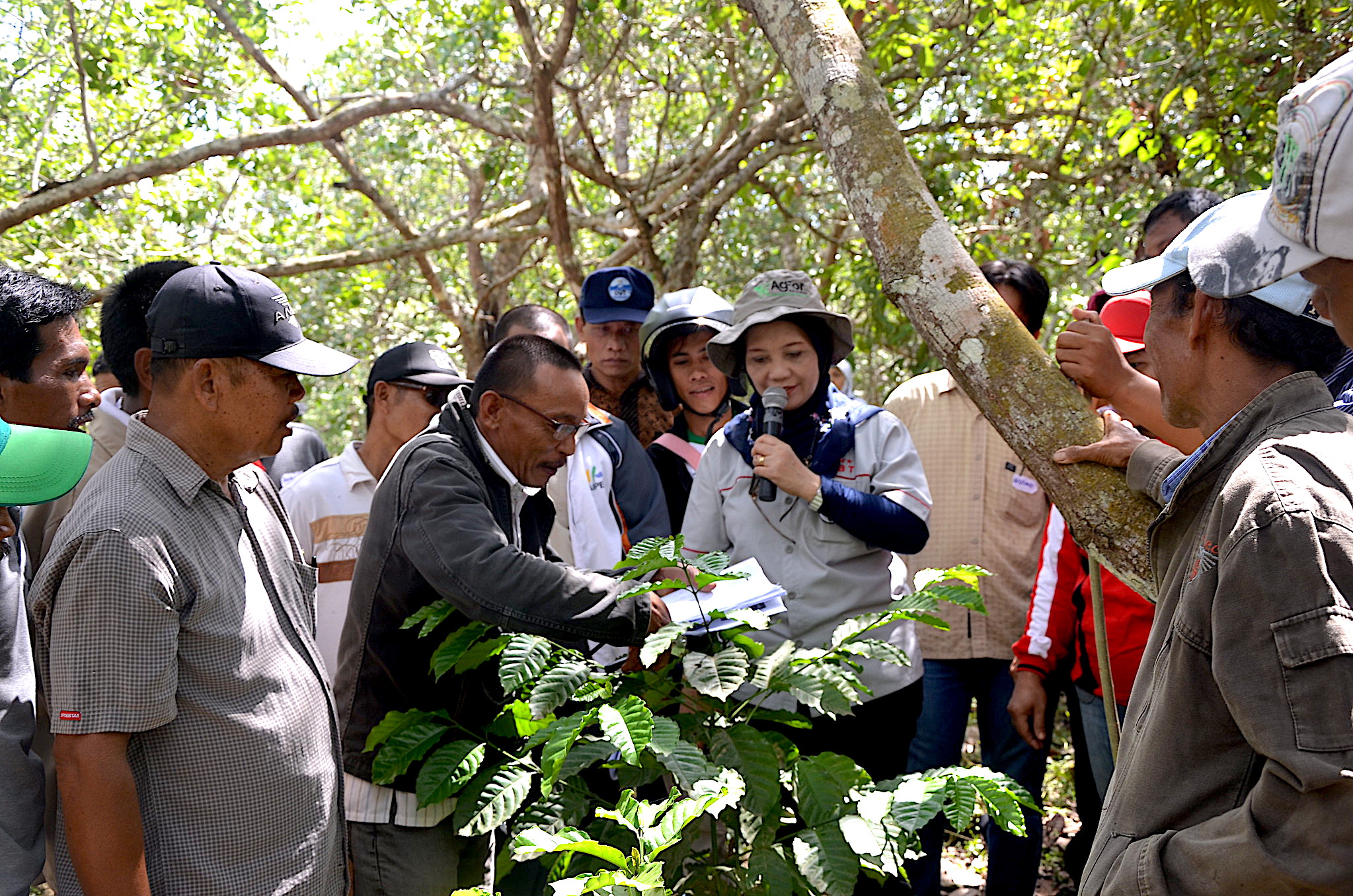Beyond a new slogan, Timothy A. Wise and Jomo Kwame Sundaram see little evidence of any meaningful commitment to sustainable agriculture in AGRA’s $550 million plan for 2023–27.

AGRA-allied African Food System Forum in Kigali, Rwanda, in September. (Paul Kagame, Flickr, CC BY-NC-ND 2.0)
By Timothy A. Wise and Jomo Kwame Sundaram
in Boston and Kuala Lumpur
Inter Press Service

 Despite its dismal record, the Gates Foundation-sponsored Alliance for a Green Revolution in Africa (AGRA) announced a new five-year strategy in September after rebranding itself by dropping “Green Revolution” from its name.
Despite its dismal record, the Gates Foundation-sponsored Alliance for a Green Revolution in Africa (AGRA) announced a new five-year strategy in September after rebranding itself by dropping “Green Revolution” from its name.
Instead of learning from experience and changing its approach accordingly, AGRA’s new strategy promises more of the same. Ignoring evidence, criticisms and civil society pleas and demands, the Gates Foundation has committed another $200 million to its new five-year plan, bringing its total contribution to around $900 million.
More than two-thirds of AGRA’s funding has come from Gates, with African governments providing much more — as much as a billion dollars yearly — in subsidies for Green Revolution seeds and fertilizers.
Stung by criticism of its poor results, AGRA delayed announcing its new strategy by a year, while its chief executive shepherded the controversial UN Food Systems Summit of 2021. Following this, AGRA has been using more U.N. Sustainable Development Goals rhetoric.
Hence, AGRA’s new slogan — “Sustainably Growing Africa’s Food Systems.” Likewise, the new plan claims to “lay the foundation for a sustainable food systems-led inclusive agricultural transformation.” But beyond such lip service, there is little evidence of any meaningful commitment to sustainable agriculture in the $550 million plan for 2023–27.

Bill Gates in 2013 at the World Economic Forum in Davos, Switzerland. (CC BY-SA 2.0, Wikimedia Commons)
Despite heavy government subsidies, AGRA promotion of commercial seeds and fertilizers for just a few cereal crops failed to significantly increase productivity, incomes or even food security. But instead of addressing past shortcomings, the new plan still relies heavily on more of the same despite its failure to “catalyze” a productivity revolution among African farmers.
[Related: COP26: Bill Gates’ Magical Thinking on Agriculture]
The supposedly new strategy dashes any hopes that AGRA or the Gates Foundation would acknowledge the harmful social and environmental effects of Green Revolutions in India, Africa and elsewhere. AGRA offered no explanation for why it dropped “Green Revolution” from its name.
The name change suggests the 16-year-old AGRA wants to dissociate itself from past failures, but without acknowledging its own flawed approach. Recently, much higher fertilizer prices — following sanctions against Russia and Belarus after the Ukraine invasion — have worsened the lot of farmers relying on AGRA recommended inputs.

Mineral fertilizer plant in Kirov Oblast, Russia. (Stif Komar, CC BY-SA 3.0, Wikimedia Commons)
It is time to change course, with policies promoting ecological farming by reducing reliance on synthetic fertilizers as appropriate. But despite its new slogan, AGRA’s new strategy intends otherwise.
Last month, the Alliance for Food Sovereignty in Africa rejected the strategy and name change as “cosmetic”, “an admission of failure” of the Green Revolution project, and “a cynical distraction” from the urgent need to change course.
Productivity Gains & Losses
Despite spending well over a billion dollars, AGRA’s productivity gains have been modest, and only for a few more heavily subsidized crops such as maize and rice. And from 2015 to 2020, cereal yields have not risen at all.
Meanwhile, traditional food crop production has declined under AGRA, with millet falling over a fifth. Yields actually also fell for cassava, groundnuts and root crops such as sweet potato. Across a basket of staple crops, yields rose only 18 percent in 12 years.
[Related: Agribusiness Is the Problem, Not the Solution]
Farmer incomes have not risen, especially after increased production costs are taken into account. As for halving hunger, which Gates and AGRA originally promised, the number of “severely undernourished” people in AGRA’s 13 focus countries increased by 31 percent.
A donor-commissioned evaluation confirmed many adverse farmer outcomes. It found the minority of farmers who benefited were mainly better-off men, not smallholder women the program was ostensibly meant for.

Farmer in the Mount Kenya region. (Neil Palmer with CIAT via Flickr)
That did not deter the Gates Foundation from committing more to AGRA despite its dismal track record, failed strategy and poor monitoring to track progress. Judging by the new five-year plan, we can expect even less accountability.
The new plan does not even set measurable goals for yields, incomes or food security. As the saying goes, what you don’t measure you don’t value. Apparently, AGRA does not value agricultural productivity, even though it is still at the core of the organization’s strategy.
Last month, the Rockefeller Foundation, AGRA’s other founding donor and a leader of the first Green Revolution from the 1950s, announced a reduction in its grant to AGRA and a decisive step back from the Green Revolution approach.
Its grant to AGRA supports school feeding initiatives and “alternatives to fossil-fuel derived fertilisers and pesticides through the promotion of regenerative agricultural practices such as cultivation of nitrogen-fixing beans.”
Business in Charge
AGRA’s new strategy is built on a series of “business lines,” e.g., the “sustainable farming business line” will coordinate with the “Seed Systems business line” to sell inputs. Private Village Based Advisors are meant to provide training and planting advice in this privatized, commercial reincarnation of the government or quasi-government extension services of an earlier era.
The U.N, Food and Agriculture Organization successfully promoted peer-learning of agro-ecological practices via Farmer Field Schools after successfully field-testing them. This came about after research showed “brown hoppers” thrived in Asian rice farms after Green Revolution pesticides eliminated the insect’s natural predators.

In Indonesia, a coffee expert teaches farmers how to prune during farmers’ field school in Mulia Jaya village, Southeast Sulawesi. (World Agroforestry, Flickr, CC BY-NC-SA 2.0)
China lost a fifth of its 2007-08 paddy harvest to the pest, triggering a price spike in the thinly traded world rice market. Seeking help from the International Rice Research Institute, located in the Philippines, a Chinese delegation found its Entomology Department had lost most of its former capacity due to under-funding.
Earlier international agricultural research collaboration associated with the first Green Revolution — especially in wheat, maize and rice – seems to have collapsed, surrendering to corporate and philanthropic interests. This bitter experience encouraged China to step up its agronomic research efforts with a greater agro-ecological emphasis.
Empty Promises?
The new strategy promises “AGRA will promote increased crop diversification at the farm level.” But its advisers cum salespeople have a vested interest in selling their wares, rather than good local seeds which do not require repeat purchases every planting season.
AGRA is not strengthening resilience by promoting agroecology or reducing farmer reliance on costly inputs such as fossil fuel fertilizers and other, often toxic, agrochemicals. Despite many proven African agroecological initiatives, support for them remains modest.
The new strategy stresses irrigation, key to most other Green Revolutions, but conspicuously absent from Africa’s Green Revolution. But the plan is deafeningly silent on how fiscally strapped governments are to provide such crucial infrastructure, especially in the face of growing water, fiscal and debt stress, worsened by global warming.
It is often said stupidity is doing the same thing over and over again, expecting different results. Perhaps this is due to the technophile conceit that some favoured innovation is superior to everything else, including scientific knowledge, processes and agro-ecological solutions.
Timothy A. Wise is a senior advisor with the Institute for Agriculture and Trade Policy and the author of Eating Tomorrow: Agribusiness, Family Farmers, and the Battle for the Future of Food.
Jomo Kwame Sundaram, a former economics professor, was United Nations assistant secretary-general for economic development and received the Wassily Leontief Prize for Advancing the Frontiers of Economic Thought.
This article is from Inter Press Service.
The views expressed are solely those of the authors and may or may not reflect those of Consortium News.

I believe it’s time to understand these outfits’ failures are only failures for the rest of us, as it must be their intent to arrive at that failure and the end results that benefit THEM in the long run.
There is absolutely no reason to still read their words and promises and believe a word, but see the truth by reading the inverse of what was actually said or written.
When one has proven to be lying systematically, then they mean the inverse of what they express, however, unseemly.
I stopped reading when I saw the names Gates and Rockefeller. Two biggest scamsters in the world.
AGRA simply ignores natural symbiotic cycles that retain moisture and enhance soil’s microbiomes which provide the plant nutrients our bodies need to fight our pandemic prone world. Nations need to get away from US finance and the dollar hegemony for many reasons: 1. It impoverishes a nation’s work force demanding lower standards of living and austerity to pay back loans. 2. The dollar hegemony is what is funding 750 + US military bases around the world. Defund the b****rds ASAP.
Oh, for god’s sakes! Who is stupid enough to listen to Bill Gates? He doesn’t really know anything all he knows how to do is manipulate an operation to make himself rich and the first word in his operations manual is cheat.
The so-called “Green” so-called “Revolution” was more honest about its ends fifty years ago. The name itself was coined as an opposition to “red” revolutions–which was taken to mean not American Republicans, but communist revolution. And “communist revolution” was a name given to revolutions of national sovereignty and of land reform, as little as either had been a particular interest of Marx.
The “Green Revolution” was to work by alternately bullying and seducing farmers into dependence on a few corporations–American corporations, once upon a time, but still Western ones. The idea was that with such dependence, they could be fed minimally and used maximally, with little chance of revolt or meaningful negotiation.
These outfits, the Gates Foundation abundantly included, fail to appreciate the bounty of egalitarian human co-existence and cooperation, but otherwise there is not much blindness here, and we had bloody well better not let them off the hook so much as to say so: the bullets have your name on it and mine.
Garden where you are if at all feasible–and it probably is. Save your seeds. Stay away not only from GMO’s, but also industrial hybrids, which tend to be sterile in the second generation and that tend to produce nutritionally hollow food that is dependent on industrial NPK fertilizer and heavy chemical use. Raise strong viable crops from heirloom seeds and starts, and return surplus to the soil.
These guys are not trying to feed the world; they know perfectly well that they cannot in the way that they are doing this, though they do not communicate that information down throughout their organizations.
Bravo for the authors’ and CN’s attention to all this. We are in transition one direction or the other, and we had best get it at least a little bit correct.
Wow, so over five whole years they are committing the cost of two, maybe three fighter jets. Not counting the tens of thousands of dollars per hour it costs to fly them, just the cost per plane at the showroom.
To borrow an old bumper sticker …. wouldn’t it be great if our society had all the money it needed to provide safe and healthy food for us all, while the USAF has to hold a Bake Sale to buy a new jet?